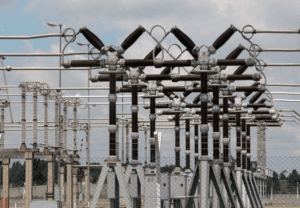Niger Coup responsible for decline in Nigeria’s petrol market
By Akinyemi Precious
The Niger coup which has forced the shuttering of borders has ended planned exports of Nigerian petrol across the continent.
This is as a result of decrease in demand at home.
The Nigerian government had ended subsidies on petrol before Niger’s crisis , dismissing concerns about petrol smuggling. Meanwhile, the demand at home was declining and was at N600 per petrol and petrol consumption had fallen over 30 per cent since the subsidy on petrol was removed and this is impacting even European refiners.
According to research, European exports to Nigeria decreased by around 160,000 bpd in July compared to May.
Nigeria’s daily consumption has declined to 38.33 million litres from 65 million litres.
“We have always known a lot of subsidised petrol was smuggled out of Nigeria to its neighbours … but this is hinting the figure could be truly massive, at 30 per cent.
“If sustained, ending the subsidy might be thrice more important for Nigeria’s economy than Dangote’s refinery,” head of macro-strategy at FIM Partners, Charlie Robertson said.
One consequence of the declining demand for petrol is that marketers are downsizing and shuttering petrol stations where demand has fallen. However, some outlets are merging already.
The closure of borders between the two countries is a double-edged sword. It would add end the smuggling of products and also prevent the growth of legal trade outlets.
It is worthy of note that Seven states in Nigeria – Sokoto, Kebbi, Katsina, Zamfara, Jigawa, Yobe, and Borno – share borders with Niger, making it a hub for illegal fuel trafficking to neighbours in the Sahel region.
The United Nations Office on Drugs and Crime (UNODC) Fuel research of 2022 titled Transnational Organized Crime Threat Assessment – Trafficking in the Sahel – also disclosed that Nigeria via Niger to Mali is one of the four major fuel trafficking routes into the Sahel countries.
Others include Nigeria via Benin to Burkina Faso and Mali; from Algeria to Mali; and from Libya to Niger and Chad, indicating that two routes depend on Nigeria for illegal activity.
According to the report, low fuel prices in Nigeria, Algeria and Libya are the main drivers of fuel trafficking into the Sahel and most of the fuel trafficked is government-subsidised official fuel from those three countries. But the Federal Government’s deregulation policy is expected to control the flow.
“If the Federal Government operates in line with sections 205(1) of the Petroleum Industry Act, prices will continue to adjust to reflect prevailing market conditions; market conditions being the price of feedstock and the exchange rate.
“This means that if prices keep rising from the current 78 cents per litre we currently have to the benchmark price of $1.10-1.30 per litre, there will be no incentive for smuggling, and the true North for daily consumption in Nigeria will continue the trend down.”




